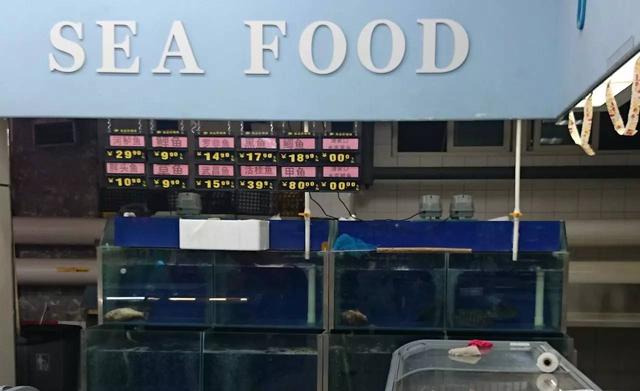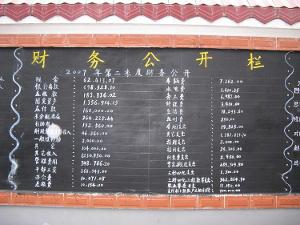Ma Yue in the year of the Monkey said Grain in Beard talked about grain.
At 13:49 today, Grain in Beard said, "Wheat with awn can be harvested quickly, and rice with awn can be planted." This year, Grain in Beard to July 3, the eve of Lesser Heat, is the legendary "year of the monkey". I would like to take this opportunity to talk about the years and months of monkeys in food.
It is said that the cycle of "the year of the Monkey" is 12 years, and the last year was in 2004. Coincidentally, the busy production of summer grain has been fruitful since 2004 and has been fruitful for 12 consecutive years by 2015. I don't know what will happen this year.
However, according to many netizens, there are many Rain Water this year, and the harvest is not very satisfactory.
Not only are farmers worried about production, but farmers are more worried about prices. How to say, as the state vigorously engaged in the purchase of some policy grain in recent years, it suddenly felt that the financial pressure could not bear the strength, and put forward a plan for supply-side reform. To put it simply, farmers should learn to cultivate land facing the market in the future. First of all, this year, corn was used as a pilot project for reform, and the effect was good. Many places reflected that there was less corn and other crops had been planted.
In fact, from a professional point of view, corn is not the first pilot reform. Soybeans and cotton have already implemented the target price subsidy policy ahead of schedule, and even the protection of domestic oil proposed by the state in the early years. Rapeseed, a rapeseed variety for rapeseed production in the Yangtze River basin, is the raw grain of rapeseed oil that people eat, which was ignored by the state as early as 2015 and oriented to the market.
When it comes to the state's policy protection of grain, there is a more interesting phenomenon: on the one hand, some farmers often report that they basically cannot sell grain at the price set by the state, and on the other hand, the state has to spend a considerable amount of money in the process of purchase and circulation, especially in grain storage (see our previous report for details).
Some oil processing enterprises once said that before the temporary storage policy was abolished, enterprises only buried themselves in acquisition, processing and storage, and the state gave enterprises a processing fee of more than 200 yuan per ton, plus an annual storage fee of 200 yuan per ton. many enterprises rely on state subsidies to maintain their survival and even make profits. Especially in the aspect of oil storage, as long as it is invested in construction at one time, it can benefit for life, and oil storage is almost profitable.
It's going a little too far. Let's go back to summer grain. How much do you think farmers can earn by working hard in farming?
I would like to provide you with a set of data, which can be used as a reference based on the editor's experience for many years.
The cost of an acre of wheat
Sowing: 80 yuan for seed: 70 yuan for fertilizer: 160 yuan for irrigation: 100 yuan for irrigation
Pesticide money: wheat weeding 10 yuan + three times control 40 yuan = 50 yuan mechanical harvesting: 60 yuan
The input cost per mu is 80,70,160,100,50,60,520 yuan.
If there are only 500 jin per mu, 500kg 1.18-520kg 70 yuan.
If the yield per mu reaches 1000 jin, 1000 yuan 1.18 yuan 1180 yuan-520 yuan = 660 yuan.
In addition, the corn market has been relatively good in recent years, which is basically offset by the income from growing wheat and the cost of growing corn, so the main income comes from corn. According to 1000 jin per mu of land, if a family is 6 mu of land, the annual income from farming is about 6000 yuan.
Of course, this does not count labor costs, despite the fact that working in the city costs at least 100 yuan a day for a labor force, to farm your own land in the countryside is to work in the fields, not to mention wages. So urban people who come out of the countryside basically don't want to plant, and each person's salary is equal to the farming income of the last family for a few years.
Writing here can't help but make people think that Grain in Beard will have no one to farm the land in the next monkey year.
Of course, these are all our blind worries. In a market economy, as long as there are benefits, some people will still farm the land. The relevant departments of the state have also set up a special food security committee, but I just don't know if these people are those who made policies in the past.
- Prev

Market | the high price of crucian carp leads the rise in the overall shortage of freshwater fish.
Market | the high price of crucian carp leads the rise in the overall shortage of freshwater fish.
- Next

Publicity of rural village affairs: the system is very good, but it has been abandoned!
Publicity of rural village affairs: the system is very good, but it has been abandoned!
Related
- A course of planting techniques and methods on how to grow carrots
- How to plant the latest tulips?
- Is it better to pick tea in the morning or in the afternoon? When is the best time for tea to be picked? what is the third or fifth tea?
- Launch Yuanxiao Happy combination Haocha + Tea Yuan healthy Taste
- Penghu Tourism "Fireworks 20 Parade with You"
- 2022 West Lake Happiness holds "Digital Revitalization Voucher" and draws iphone13 and laptop.
- Banqiao Fuzhou social houses are designed to change start-up combined with police elimination to create a safe and livable environment
- The convenient measure of "mechanical weeding" in Xinbei has been abused and the Agriculture Bureau has imposed heavy penalties on the illegal land consolidation.
- Changgeng University Joins Hands with Four Memory Factories to Rescue Memory Talent Shortage
- The list of Taiwan's top 100 MVP managers is listed by the Director-General of the Farmers' Association of Sanxia District.

